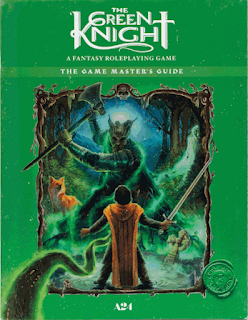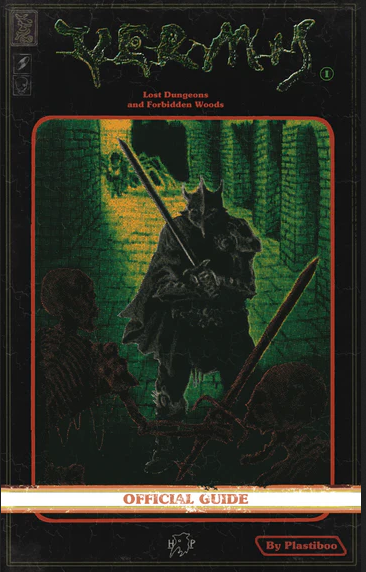The Craft Skill
Some Refs and players enjoy including downtime activities, such as spell research, carousing, domain management, and other stuff. Crafting and selling is one such type of downtime activity, and so why not make up a skill for players looking to earn silver, make items for enchantment, repair gear or whatever else?
 The Craft skill is a specialty skill. Characters do not possess a 1 in 6 chance by default: it is the class ability of Dwarfs, for whom it replaces the Architecture skill and progresses at the same rate. Others may only gain the skill by allotting Specialist skill points or training in the skill.
The Craft skill is a specialty skill. Characters do not possess a 1 in 6 chance by default: it is the class ability of Dwarfs, for whom it replaces the Architecture skill and progresses at the same rate. Others may only gain the skill by allotting Specialist skill points or training in the skill.
 The Craft skill is a specialty skill. Characters do not possess a 1 in 6 chance by default: it is the class ability of Dwarfs, for whom it replaces the Architecture skill and progresses at the same rate. Others may only gain the skill by allotting Specialist skill points or training in the skill.
The Craft skill is a specialty skill. Characters do not possess a 1 in 6 chance by default: it is the class ability of Dwarfs, for whom it replaces the Architecture skill and progresses at the same rate. Others may only gain the skill by allotting Specialist skill points or training in the skill.
In order to craft, appropriate Specialist's tools and facilities are required. The amount of time it takes to craft is at the Ref's discretion. Factors such as special preparations or assistance by another skilled character can also have an effect. A character may create 100sp worth of goods per point in the Craft skill in a Haven turn (1 month). Supplies cost 50% of the total value of the finished items, with adjustments made based on availability, rarity, legality, etc.
Crafting goods does not require a skill roll to succeed under normal conditions, as craftspeople are assumed to be competent. The roll instead serves the purpose of determining if the goods are of high quality, which will sell better and for a higher price. On a failure the crafting is successful but the goods are only of normal quality. Items with a value above the maximum (such as plate armor) require multiple Haven turns.
High-Quality Items
An item gains value based on the roll made (as long as it is successful) equal to 20% x the roll's result. Thus, it follows the "roll high-under" method- characters are able to create more valuable items the higher their skill level.
Only items of Excellent or Masterwork quality can be enchanted. The added value from Fine, Excellent or Masterwork quality does not count towards the 100sp/SL total that a character can craft, this total applies only to the base price of crafted items.
The professions of armorer, gunsmith and weaponsmith are more demanding in technique than standard professions. The level of skill in a Craft dictates what a character can make, shown on the table below. The level of skill simply determines the items the character is capable of crafting; a roll of 1 when crafting armor will not turn it into a buff coat, for example. So while characters will be able to reliably craft the items they know how to make, their skill level will allow them a higher level of value and quicker production.
*will take multiple haven turns, as it is valued at 1,000sp.
Selling Crafted Items
Selling things takes time. A character can sell d100 x SL worth of goods per Haven turn. If there are "partially sold" items (the total rolled does not add up to the value of the item) then the character may choose to sell it for the price rolled, or try again at the next opportunity. In this case, the previous roll is kept and a new roll is made and added to it and the character may again choose to sell for that price (if it is lower than the standard value) or the standard value if the result exceeds it.
For example, a suit of Chain armor worth 100 sp being sold by a character with SL 2 would allow them to roll 2d100. The character rolls a total of 83, and could either choose to sell it for that price (a 33sp profit) or hold it in reserve until their next opportunity, where they would again roll 2d100. The second roll, with a result of 140, adds onto the previous roll of 83, for a total of 223sp. The character could sell the Chain armor for full price, as well as an additional 123sp worth of crafted goods.
Availability of items and supplies (Optional)
It may only be possible to obtain supplies and ingredients or sell goods in larger towns or cities where demand is higher or more wealth is in circulation, but prices may be higher in smaller communities where fewer goods are available, at the Ref's discretion. Small settlements are likely to have unaccomplished craftspeople, so higher quality weapons, armor and guns might be unavailable. Perhaps a level 1 skill equates to a village, a 2 to a town, a 3 to a city, and fine/excellent/masterwork items to large cities or capitols if that makes things easier to conceptualize as a Ref.
High-Quality Items
An item gains value based on the roll made (as long as it is successful) equal to 20% x the roll's result. Thus, it follows the "roll high-under" method- characters are able to create more valuable items the higher their skill level.
Only items of Excellent or Masterwork quality can be enchanted. The added value from Fine, Excellent or Masterwork quality does not count towards the 100sp/SL total that a character can craft, this total applies only to the base price of crafted items.
d6
|
Quality
|
Benefit
|
1
|
Fine
|
+20% value
|
2
|
Fine
|
+40% value
|
3
|
Fine
|
+60% value
|
4
|
Excellent
|
+80% value, can be enchanted
|
5
|
Excellent
|
+100% value, can be enchanted
|
6
|
Masterwork
|
+120% value, extraordinarily durable, can be enchanted
|
The professions of armorer, gunsmith and weaponsmith are more demanding in technique than standard professions. The level of skill in a Craft dictates what a character can make, shown on the table below. The level of skill simply determines the items the character is capable of crafting; a roll of 1 when crafting armor will not turn it into a buff coat, for example. So while characters will be able to reliably craft the items they know how to make, their skill level will allow them a higher level of value and quicker production.
SL
|
Armor
|
Guns
|
Weapons
|
1
|
Buff Coat/Leather, Shields
|
Matchlock
|
Club/Sling/Staff (simple)
|
2
|
Chain
|
Wheellock
|
All melee types
|
3+
|
Plate*
|
Flintlock/Rifling
|
Bows/Crossbows
|
Selling Crafted Items
Selling things takes time. A character can sell d100 x SL worth of goods per Haven turn. If there are "partially sold" items (the total rolled does not add up to the value of the item) then the character may choose to sell it for the price rolled, or try again at the next opportunity. In this case, the previous roll is kept and a new roll is made and added to it and the character may again choose to sell for that price (if it is lower than the standard value) or the standard value if the result exceeds it.
For example, a suit of Chain armor worth 100 sp being sold by a character with SL 2 would allow them to roll 2d100. The character rolls a total of 83, and could either choose to sell it for that price (a 33sp profit) or hold it in reserve until their next opportunity, where they would again roll 2d100. The second roll, with a result of 140, adds onto the previous roll of 83, for a total of 223sp. The character could sell the Chain armor for full price, as well as an additional 123sp worth of crafted goods.
Availability of items and supplies (Optional)
It may only be possible to obtain supplies and ingredients or sell goods in larger towns or cities where demand is higher or more wealth is in circulation, but prices may be higher in smaller communities where fewer goods are available, at the Ref's discretion. Small settlements are likely to have unaccomplished craftspeople, so higher quality weapons, armor and guns might be unavailable. Perhaps a level 1 skill equates to a village, a 2 to a town, a 3 to a city, and fine/excellent/masterwork items to large cities or capitols if that makes things easier to conceptualize as a Ref.










Hey, cool, you're back!
ReplyDelete